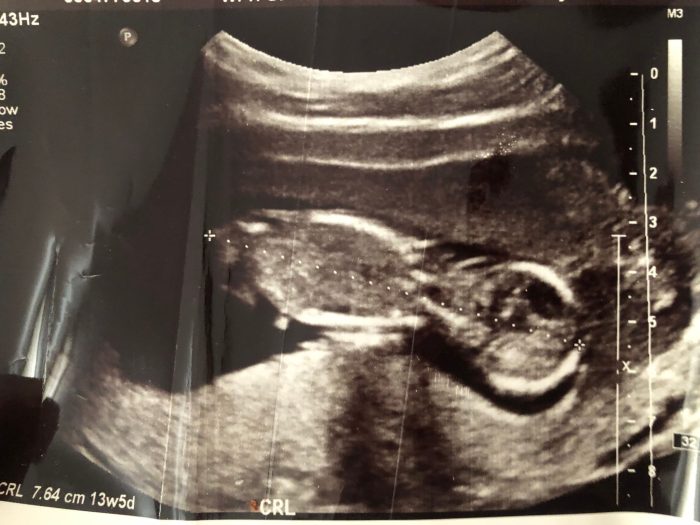
Eliana Rose is the beloved child of Sarah and Reed*, but following a heartbreaking miscarriage, Eliana’s remains were sent to a landfill without her parents’ knowledge.
Every hospital in the nation follows disposition protocols based on state laws that determine what happens to the remains of a miscarried or stillborn child. The rules are usually determined based on the age of the child at the time of his or her death — and in most states, preborn children miscarried prior to 20 weeks are disposed of with a hospital’s medical waste.
Aborted children, no matter the age, are treated as waste as well. This was made evident when five babies, who appeared to have been aborted late in pregnancy, were found among dozens of earlier gestational babies in medical waste bins outside a Washington, D.C. abortion business. States like Texas and Ohio have been working to pass legislation to ensure that miscarried and aborted babies are not disposed of with medical waste, but it remains unclear how many hospitals currently send fetal remains to landfills.
A heartbreaking loss
In 2019, Sarah and Reed were thrilled to be expecting their second child, but their world was shaken when the unexpected happened. At 13.5 weeks, Sarah experienced a subchorionic hemorrhage, bleeding under one of the membranes that surrounded her preborn baby. Doctors at the emergency room sent her home on bed rest, but a week later, she began experiencing pain so strong that she returned to the ER. This time, doctors removed two blood clots from her cervix.
An ultrasound showed that the baby was fine and that Sarah was not in preterm labor. Doctors sent her home again, but she was only there for a few minutes when she felt excruciating pain. Then her water broke.

Ultrasound image of Eliana Rose at 13 weeks 5 days. (Do not reprint photo without express permission of owner.)
Sarah and Reed raced back to the ER where the frightening event spiraled into a nightmare they could have never imagined.
“It went from everything was fine to everything was not fine,” Sarah told Live Action News. “I remember thinking that everything was still going to be okay. I trusted that God was still going to protect this baby.”
Sadly, an ultrasound in the ER revealed that their nearly 15-week preborn baby was no longer in the uterus. Sarah was told to lay back and push. The doctor said the baby’s head was stuck, and used tools to remove the baby.
“[The baby was] decapitated. And then [the doctor] started telling us the parts that she was removing,” said Sarah.
Their baby was placed in a bucket, and the couple broke down when they were told their baby was a boy. The nurse told them there were two options for their baby — a funeral or standard hospital disposition — and that no one had ever chosen a funeral. Believing that standard hospital disposition meant their baby’s remains would be put in a burial plot designated for miscarried babies, the couple agreed to it.
‘My baby was taken to a landfill’
After a few weeks of grieving and processing what had happened, Sarah came to understand that second-trimester miscarriage doesn’t look like what she and her husband — or their baby — had experienced.
“I really believed that everything happened how a normal second-trimester miscarriage went,” she explained. “I didn’t know anyone who had a second-trimester miscarriage. I was trying to listen to people’s experiences and no one else had an experience like mine… I realized that there were a lot of different things I could have done that day… It happened so quickly and we didn’t know to ask because we had never considered that we would lose this baby. The whole experience caused me to wonder if — when ERs are overwhelmed — are bereavement protocols the first thing to go out the window?”
Sarah called the hospital to inquire where they took the remains of miscarried babies for burial. She was given the address of the landfill.
“I felt like I was never going to have peace,” she said, “knowing that my baby was taken to a landfill.”
Trying to find peace
Feeling the need to learn as much about her child’s birth as possible, Sarah requested hard copies of her medical records. When she received the pathology report, she saw that their baby had actually been a girl.
She and her husband had named, mourned, and memorialized a son, and the realization that they actually had a daughter brought further devastation.
Reed had chosen the name Eliana during the pregnancy because he had been certain they were having a girl. They held a memorial service for her and tried to find closure — but two years later, Sarah still did not have peace. Through research, she had learned that mothers who don’t have a tangible goodbye, who don’t get to see or hold their babies, suffer mental health declines.
She knew she needed to see where her baby was taken in hopes of finding the peace she needed.
“For everyone who was over my care, [they acted as if] it’s normal for a baby to be decapitated, dismembered, and then you never see it, hold it, and it’s just thrown away,” she said. “It was like everyone in my life and over my care was making me feel like that was normal and that my response to it wasn’t. It just didn’t seem normal.”
Though visiting the landfill helped to bring some closure, it also brought more heartache.

The landfill where Eliana Rose’s remains were taken. Eliana means both “ray of light” and “God has answered.” (Do not reprint photo without express permission of owner.)
“I was very naive. I had no idea what I was about to see,” said Sarah. “When we got there it was pretty overwhelming. There were trucks that were lined up with mattresses and dead animals and trailers of trash. Seeing the big dark mound in front of us with all these birds flying overhead was just completely gut-wrenching. “
Finding hope by helping others
Sarah knew that no family should have to visit their baby at a landfill, so she set out to help prevent that from happening to anyone else. She found her calling with Rachel’s Gift, an organization educating nurses on hospital disposition and how to communicate the options properly to grieving parents.
“The only thing that brings me hope is knowing that if I speak up and talk about this then maybe it doesn’t have to be this way for another family,” she said.
A study by Rachel’s Gift revealed that a year before the organization trained nurses, 76 families chose standard hospital disposition for their babies. The year after the nurses’ training, only eight families chose it. “I think that speaks volumes that when nurses are educated then they know how to educate families,” said Sarah.
Sarah also leads support groups for bereaved parents and volunteers at a pregnancy resource center, where she hopes to help create a support group for women who have had abortions.
“God really softened my heart to have compassion for women who choose elective procedures. Eliana … I don’t know if she was alive or not during delivery but she was dismembered and thrown away. God really softened my heart to the women who go through these procedures and then if they ever come to terms or regret this, first of all, they’re not informed that it’s a very traumatic thing that they go through,” Sarah said. “It is not something that you can just forget. The Bible tells us… women don’t forget their nursing babies. We were designed not to forget the life that’s inside of us. And for women who go through this, this is how their babies are treated, and if they regret that, how much pain and shame they must carry.”
Sarah and Reed are finding healing and have welcomed a second son, but they face what happened to Eliana on a regular basis.
Sarah explained, “When I would see that [waste] company truck driving all over town I would have panic attacks on the side of the road and have to pull over. I’m almost four years out, but I go to Panera Bread and there are options for the trash cans: compost, landfill, recycle. […] I have to tell my children one day why their sister isn’t buried. I’m dreading the day that I have to tell them what happened. It will reverberate over my whole life and I want to prevent this from happening to other people. It’s unnecessary grief.”
*Editor’s Note: Names have been changed for privacy reasons.

Δεν υπάρχουν σχόλια:
Δημοσίευση σχολίου